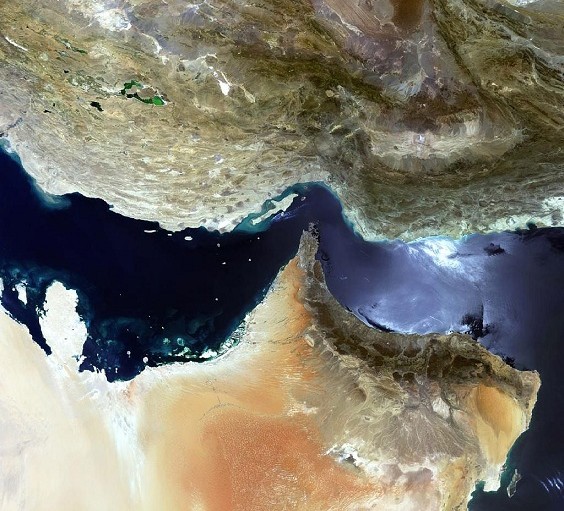gCaptain -
As global leaders weigh Iran’s threat to block oil deliveries through the Strait of Hormuz, U.S. energy officials said Friday that more oil passed through the strategically located stretch of water in 2011 than in previous years and that any blockage of so-called chokepoints could lead to “substantial increases” in energy costs.
In data released Friday, the Energy Information Administration said an average of 17 million barrels of oil moved daily through the Strait this year, up from 15.5 million to 16 million barrels in 2009 and 2010.
The Strait carried about 20% of all oil traded worldwide and about 35% of all seaborne-traded oil, EIA said.
Located between Oman and Iran, “Hormuz is the world’s most important oil chokepoint,” the EIA said on its web site.
The EIA released data on the Strait of Hormuz after Iran’s first vice president, Mohammad-Reza Rahimi, said Iran would block oil deliveries through the Strait if global powers imposed sanctions targeting his own country’s oil industry.
Iran is the fourth largest oil producer in the world. Oil currently trades at around $99 a barrel.
While experts say Iran is unlikely to actually close the Strait, in large part because such a move would damage its own economy, Iran is conducting a 10-day naval exercise in and around the waters of the Persian Gulf.
On Thursday, U.S. State Department spokeswoman Victoria Nuland said “the ratcheting up of pressure” on Iran “is pinching in a way that is causing them to lash out,” according to transcripts.
If the Strait of Hormuz were to close, oil deliveries could be rerouted via pipelines “at increased transportation costs,” the EIA said. Specifically, oil could be shipped via a 745-mile pipeline that stretches across Saudi Arabia from Abqaiq to the Red Sea.
Oil could also be pumped north via pipeline to a port on the Mediterranean Sea.

Posted via http://maritime-news.posterous.com Maritime-News posterous
.jpg)
No comments:
Post a Comment